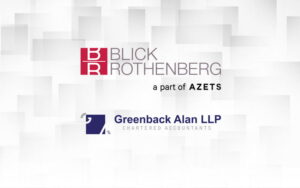FRS 102 is changing – Why Mid-Market companies must pay attention now
Tom Utley, a Manager in our Mid-Market Audit team, explores the upcoming changes to FRS 102 and the challenges they bring for businesses reporting under UK GAAP
7 April 2025 | Author: Tom Utley
The Financial Reporting Council has announced an overhaul of FRS 102, the key UK accounting standard for mid-market businesses.
What’s changing and when?
The Financial Reporting Council has announced an overhaul of FRS 102, the key UK accounting standard for mid-market businesses. The changes will take effect for accounting periods beginning on or after 1 January 2026.
These revisions align FRS 102 more closely with international standards, particularly IFRS 15 (Revenue) and IFRS 16 (Leases). Whilst this modernisation brings consistency, it also means mid-market businesses must prepare for significant adjustments in how they recognise revenue and account for leases.
So, what’s changing and what does it mean for your business?
Key changes: Revenue and Leases
Revenue Recognition:
The revised FRS 102 adopts a five-step model similar to IFRS 15, requiring businesses to:
- Identify the contract(s) with a customer
- Identify promises in the contract
- Determine the transaction price
- Allocate the transaction price to promises in the contract
- Recognise revenue when (or as) the entity satisfies a promise
This change will particularly impact businesses with long-term contracts, bundled services, or variable pricing structures, making revenue recognition more judgment-based and potentially shifting when revenue is recorded.
Leases:
Currently, operating leases don’t appear on balance sheets, but that’s set to change. The new FRS 102 rules align with IFRS 16, meaning most leases will now be capitalised as assets and liabilities. This change will impact businesses with significant lease commitments — particularly in retail, hospitality, and professional services — altering key financial metrics like EBITDA and gearing ratios.
Practical challenges
The key changes listed above introduce practical challenges for finance teams. Identifying separate performance obligations within contracts and determining an appropriate transaction price for revenue recognition may require significant judgment and detailed contract analysis. Similarly, calculating a suitable discount rate for capitalising leases can be complex, especially for businesses without readily available borrowing rates. These challenges may lead to inconsistencies, an increased administrative burden, and the need for additional expertise to ensure compliance.
Will a prior year restatement be needed?
No need to panic — prior year restatements will not be required under the revised FRS 102. Instead, businesses will transition using a modified retrospective approach, meaning you only apply the new rules from 1 January 2026 without needing to adjust historical financial statements. This reduces complexity, but it still means careful planning is needed to ensure a smooth transition.
How will this impact the UK Mid-Market?
For mid-market businesses, these changes could have significant financial and operational consequences:
Revenue volatility: The new revenue recognition model could lead to shifts in when revenue is recorded, affecting forecasting and KPIs.
Changes to EBITDA: Rent charges in the profit and loss account will now appear as depreciation and interest, therefore will not be included in the EBITDA calculation. Changes in EBITDA may impact business valuations in purchase or sale transactions, affect compliance with bank covenants tied to EBITDA, and reduce consistency when comparing financial performance across prior periods. Additionally, management remuneration of bonus schemes linked to EBITDA may need reassessment to ensure fair and consistent measurement.
Balance sheet changes: With leases now recognised on the balance sheet, companies will see higher assets and liabilities, potentially impacting loan covenants and investor perceptions.
System and process overhauls: Finance teams will need to update accounting policies, software, and internal controls to comply with the new standards. There will be an additional administrative burden in relation to this, as well as getting past the practical challenges such as calculating a suitable discount rate.
Should I be worried? What should I do now?
While these changes may sound daunting, they don’t have to be disruptive if businesses act early. Here’s how you can prepare:
Assess your revenue streams and lease commitments: Identify contracts that will be most affected and model potential impacts.
Engage with lenders and investors: Discuss any potential financial metric changes to avoid covenant breaches.
Upgrade accounting systems: Implement necessary changes to accounting systems and processes to align with the new requirements.
Train your finance team: Ensure that relevant teams within the organisation are well-informed about the changes and receive adequate training to comply with the new standards.
How we can help
If you would like to discuss the impact of the revised FRS 102, please get in touch with either Tom Utley or your usual Blick Rothenberg contact using the form below.
Contact Us

You may also be interested in

Contractors and subcontractors in the UK construction sector must understand the Construction Industry Scheme

Vodcast – Steve Rigby











